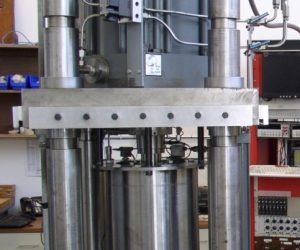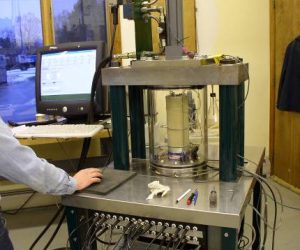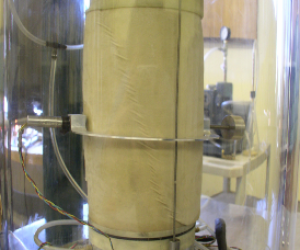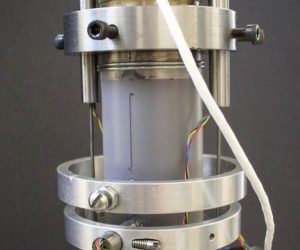Geotechnical Laboratory
Located in Randolph, Vermont, ARA’s Geotechnical Laboratory delivers advanced testing and characterization of geo-materials including soil, rock, and concrete, as well as engineered materials like foams and simulants. With more than 35 years of geotechnical research, development, and testing experience, our proven methodologies ensure that our customers receive accurate test results that truly represent the response of the tested material under the designed loading environment.
Leveraging state-of-the art equipment, advanced testing methodologies with ultra-high pressures, and decades of expertise, ARA provides precise, comprehensive testing and consulting services to give customers reliable geotechnical analysis for data-driven insights.
Superior Material Handling &
Quality-Controlled Specimen Preparation
High Stress Testing up to 400 MPa (58,000psi)
Confining Pressure
Materials Testing & Analysis
ARA’s Geotechnical Lab is equipped to perform a wide range of advanced materials testing and analysis, including specialized and custom testing. With cutting-edge equipment and deep technical expertise, the lab conducts precision evaluations of compressibility, compressive strength, shear strength, tension, and other material properties. Custom testing is available when unique stress or strain paths are needed.
Compression Testing
The Geotechnical Lab’s capabilities include test methods for hydrostatic compression, uniaxial strain, oedometer, and rock joint compressibility. The lab supports cyclical loading and other customized cycles.
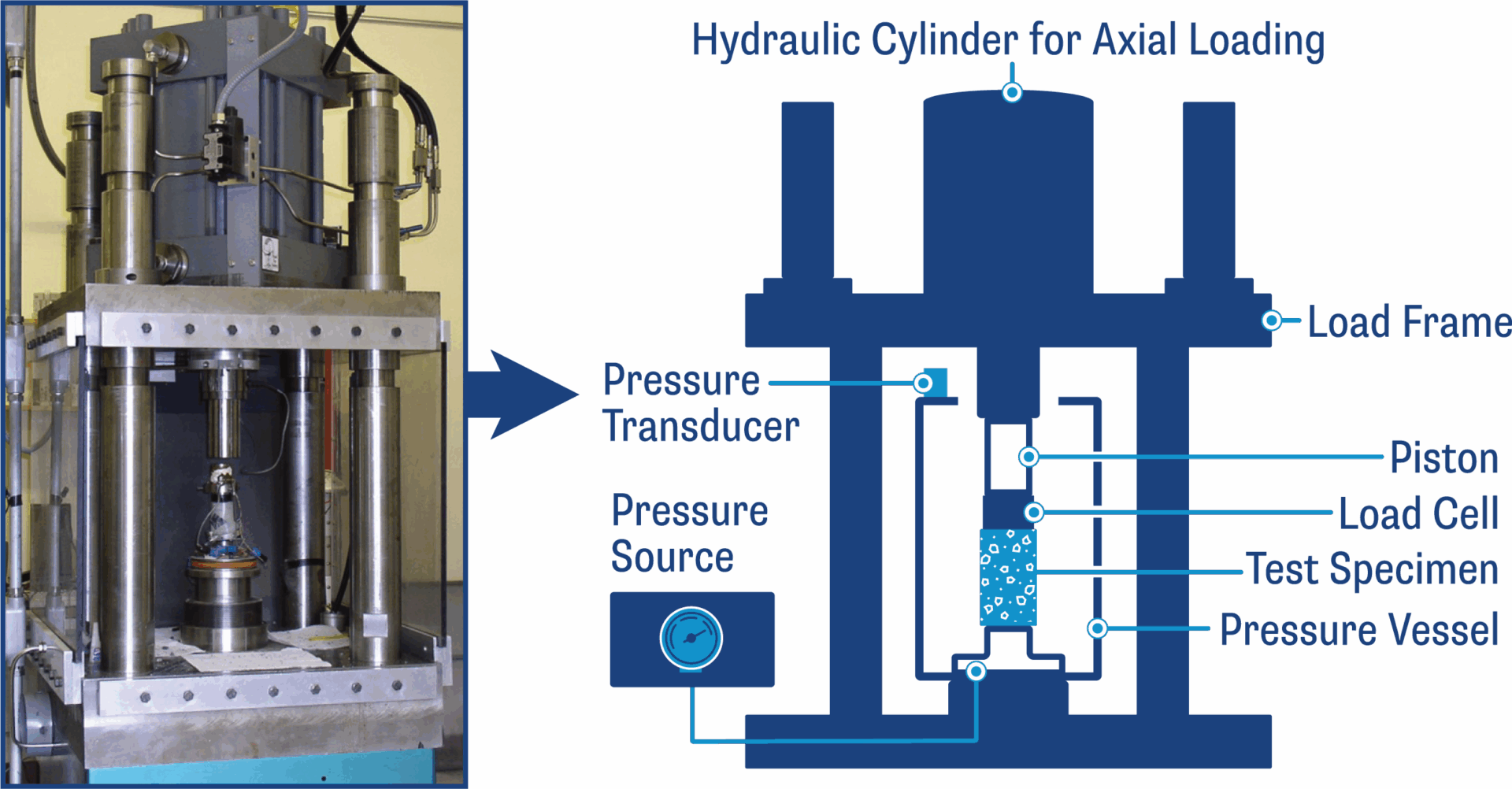
ARA’s triaxial compression system allows for testing at high stresses up to 400 MPa (58,000 psi)
Strength Testing
The Geotechnical Lab offers compressive strength testing including unconfined (uniaxial) compression, triaxial compression, and rock joint shear strength to determine the strength of a geomaterial. We conduct specialized tension testing to obtain detailed results with direct tension and confined test methods. Additionally, the lab can perform post-failure specimen response analysis.
Material Property Analysis
The Geotechnical Lab offers comprehensive analysis of numerous material properties, including nonlinear shear strength envelope and compressibility, tensile strength, facture toughness, elastic moduli, and mass-volume relationships.
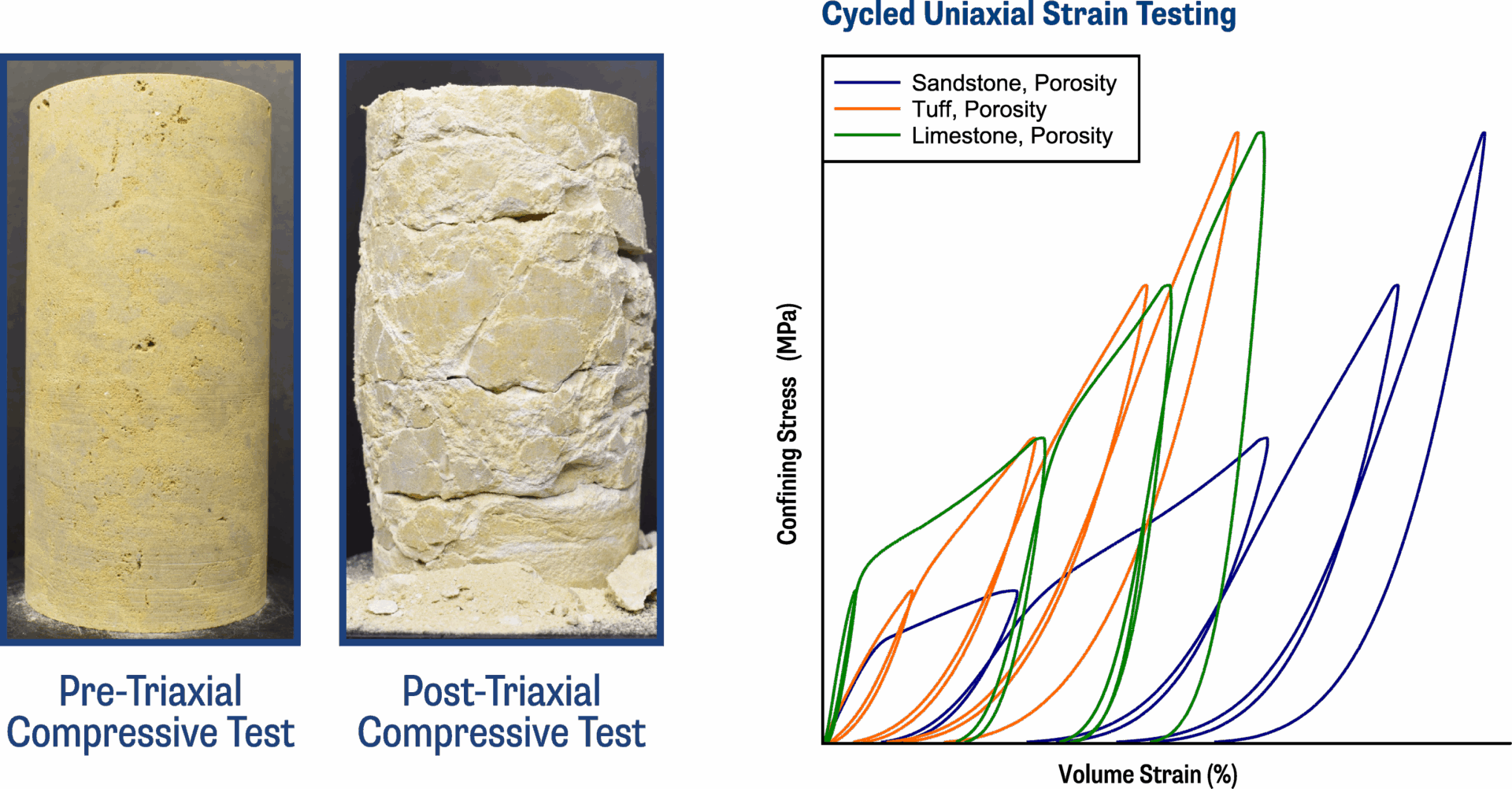
Capabilities
Triaxial Press Test Methods
- Unconfined (uniaxial) compression
- Hydrostatic compression, cyclic loading cycles available
- Triaxial compression up to 400 MPa (58,000psi) confining pressure
- Uniaxial strain (axial loading under confining stress while restricting specimen radial strain)
- Oedometer testing of rock and soil
- Tension testing
- Direct tension
- Brazilian splitting tension
- Confined tension
- Triaxial extension
- Special stress or strain paths
- Joint rock characterization
- Deformation of joints independent of deformation of adjacent intact rock
- Joint shear strength
- Pore pressure control to determine total strength envelope and effective strength envelope
- Post-failure response
- Ultrasonic wave speed measurement
- Other specialized mechanical testing
Material Properties
Determined from Testing
- Shear strength envelope
- Friction angle, cohesion, Mohr’s Circle stress space
- Stress invariant stress space, such as Stress Difference vs Mean Stress
- Tensile strength
- Fracture toughness
- Elastic moduli
- Elastic (Young’s) modulus
- Bulk modulus
- Constrained Modulus
- Shear modulus
- Poisson’s Ratio
- Mass-Volume Relationships
- Bulk density, grain density (specific gravity of solids), porosity, moisture content, saturation
